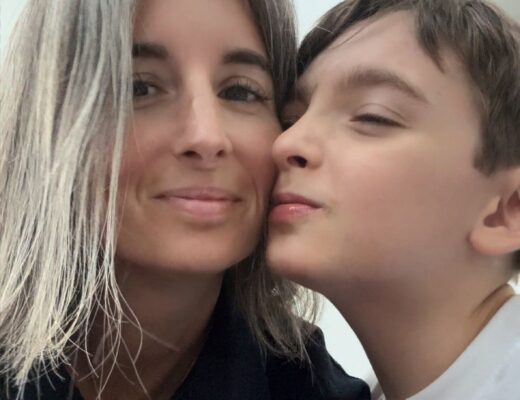There’s been a huge increase in people trying to erase severe autism.
“Severe autism isn’t real.”
“No one is more severely autistic than someone else.”
“We’re all equally autistic.”
As someone diagnosed with Level 1 (high-functioning) ASD who’s raising a child with Level 3 (severe) ASD, I can tell you that these statements are far from the truth.

(1) “Everyone is equally autistic”
There’s a significant difference between an autistic person who has the luxury of being able to advocate for themselves on social media, me, and an autistic person who can’t communicate beyond basic needs, who can’t keep themself safe, and who needs 24/7 care.
(2) “The spectrum is a wheel, not a line”
Some justify the fact that severe autism isn’t real by saying that the spectrum cannot be described by such a linear scale. The idea is, the spectrum does not simply span from mild to severe. Many of them prefer “the autism wheel,” where many autistic attributes and challenges are represented as equal pieces of a pie, with severity represented by how far from the center each section extends.
While this is a fine, albeit self-reported way of visualizing a range of characteristics, sort of like how reading the results page of a testing report would be, it’s a solution to a different problem. Someone with Level 3, severe autism would have a fully filled-in wheel in most, if not every section, whereas someone with Level 1 autism would have a lower intensity range of results.
Showing someone or describing a graph every time you want to describe their autism is longwinded and simply not feasible. The fact of the matter is, regardless of where one might land across these different measurements, the intensity of one’s autism and the level of outside support they require to exist in this world needs terminology to be communicated. This is what we’re trying to describe. It’s not an attempt to reduce an entire person to a word like “severe,” but attempting to banish these words ignores the need for a shorthand for what most people are trying to communicate — it’s a highly sensitive, overly complex, and unrealistic effort that misses the point in, dare I say, a characteristically autistic way. (Remember, people, I say this as a diagnosed autistic person — it would be disingenuous to argue that there are not some ways of thinking common across autism.)
(3) “Severity levels change from one day to the other”
Another argument, that severity levels vary from day to day, similarly misses the purpose of these terms, and is largely untrue. Someone with level 3 autism doesn’t have days when they can suddenly wipe their own butt, answer questions, and safely keep themselves from wandering into traffic. They’re level 3 every single day. When I hear autistics say, “I go nonverbal” in an attempt to say that they understand my son’s autism, I point out how the fact that they’ve just said that to me means that no, they don’t, that it’s fundamentally not the same, even if they relate to some characteristics in some ways. Charlie doesn’t come out of it and advocate himself or insult parents of severely autistic children on social media.
(4) “Severe autism isn’t real”
If people keep pushing the “severe autism isn’t real” narrative, services and support for individuals who need it the most will become even harder to get. Many autistic adults require extra care for their entire life and sometimes even live in group homes. If all the general public sees are autistics with lower support needs “stim dancing” on social media, it’s harder to convey why some autistics need much more support and showing them a wheel graph isn’t the answer.
(5) Level 3 autism is in the DSM-V.
It’s a medical diagnosis. Like it or not, severity levels 1, 2, and 3 are specified there in black and white, ranging respectively from “requiring support,” to “requiring substantial support,” to “requiring very substantial support.” And the “profound autism” designation is recognized by The Lancet. “Severe” isn’t a dirty word. It’s a way to accurately and functionally describe that an autistic person has high support needs. And its use certainly does not preclude one from following up with a further description of the person in any way they might desire. It’s a free country.




8 Comments
Taylor
2023-01-23 at 2:06 AMJust another mom using a fake personal autism diagnosis as a shield so people can’t call her out for her anti-autism narrative. People that are actually autistic know that “high functioning” is just another word for “high masking” and that just because someone can mask better than others doesn’t mean they’re “higher functioning”. People that are actually autistic do not use these labels. These labels are forced on us by neurotypical people who would rather label and sort us instead of actually learning about us. You keep shoving your child into a box and labeling him “severely autistic” and it’s going to come back on you one day when he grows up and leaves the house and you wonder why he won’t talk to you.
Tristan
2023-01-27 at 7:29 PMIf anything, it’s people like YOU who are “anti-autism.” The writer of this post is autistic; she even clarified it at the beginning of the article. To accuse her of faking her autism diagnosis because you disagree with her is more “anti-autism” than anything she wrote. In fact, I agree with her on every point; I am a moderately-autistic person (diagnosed with level 2 ASD), and I use the terms mild, moderate, and severe autism. I also know several autistic people who use them, so I’m not sure why you think people who are “actually autistic” wouldn’t use these labels. And no, using those terms is not “shoving people into boxes.” They’re terms that describe an autistic person’s support needs in a concise, easy-to-understand manner. You self-diagnosed people really need to bugger off and stop speaking over actual autistics.
Melanie
2023-01-31 at 10:20 PMYOU sound like someone who is offended because you want to happy stim dance on social media without being demonized for it. Will you need 24/7 support for the rest of your life? Do you have loved ones who worry about what will happen to you when they pass and can’t look after you anymore? Everyone wants to be a victim nowadays.
Teres Bergmann
2023-02-13 at 2:15 PMTaylor,
My severely autistic grandson isn’t capable of using any label and will never be capable of growing up snd leaving his house. Our entire family would be thrilled to death if he ever spoke and decided to quit speaking. You’re only seeing this through your eyes.
Morénike
2023-01-27 at 12:33 PM@Taylor: To declare her autism diagnosis as “fake” simply because her opinion differs from yours is unacceptable. Two, or even two thousand people sharing a diagnosis doesn’t make them clones of one another who have to share the same worldview.
I do not agree with functioning levels. However, I believe autistic people should be able to self-identify in whatever way is most authentic for them. If someone wants to view and call themself a “person with autism” or an “autistic person” or “high-functioning,” then that is their personal right and it should be respected. It doesn’t mean that you have to identify yourself that way.
Lastly, please have some sensitivity. To tell a parent whose child does not have a reliable method of expressive communication that said child will “never speak to you again” is a low blow given that her child does not “speak” to her now. It might not have been intended to be as cruel a statement as it is, but that doesn’t change the reality.
People need to develop the capacity to disagree with one another without resorting to insults. In this post, Eileen makes her points without insulting anyone. That should be reciprocated.
Teres Bergmann
2023-02-13 at 2:20 PMWhat don’t you people understand about the fact that there are autistic people who are incapable of self-identifying as anything and incapable of seeing themselves as autistic or non-autistic ? Those are the severely autistic precious people in our lives. You’re not seeing things from their perspective.
Sabra Victory
2023-02-13 at 6:29 PMThe fact that a person can achieve a high level of masking reinforces they are higher functioning. That doesn’t mean that person doesn’t need support or that it’s not exhausting to mask.
Chip
2023-04-14 at 6:45 PMThis is a subject of concern for me because I was diagnosed as a level 3 autist last year at the age of 50. I had trouble accepting this diagnosis at 1st because I am verbal and I can mask very well. I also have a high IQ. I do need very substantial help to be a productive member of society. I don’t need help feeding myself or recognizing and avoiding danger. There needs to be labels for everyone to quickly identify the type of help an autist needs. Whether or not I am a level 3 autist is debatable , but I am not severely autistic and to try and represent that I am would take away from the needs of people who are severely autistic. These are all just words people, let’s accept them for the descriptions they are and move on to the the individual needs of people that need help. Arguing about what a thing is called doesn’t change it. For those of you who will question my diagnosis because of my ability to communicate through written language , I am of a like mind. I was diagnosed by a psychologist who is a leading authority on autism in the area I hale from.